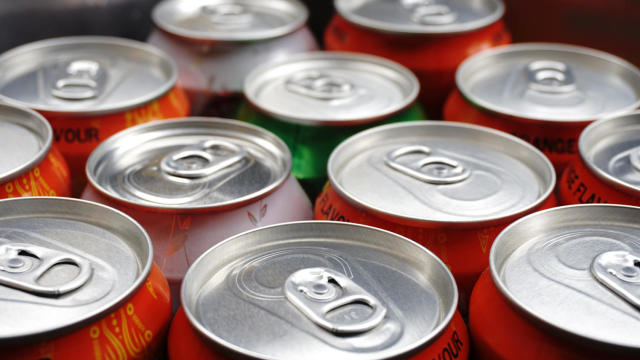The Food and Drug Administration on Thursday proposed banningthe use of brominated vegetable oil, a food ingredient once widely used in popular drinks like Gatorade and Mountain Dew that has been slowly phased out due to its link to potential health risks, including damage to the liver, heart and brain.
Brominated vegetable oil is a food additive primarily used in fruit-flavored sports drinks and sodas to keep ingredients from separating. It contains bromine, an element found in flame retardants.
Although many large beverage brands, including Coca-Cola and Pepsi, have already stopped using the ingredient in their products, it can still be found in smaller grocery store brands and some popular regional beverages, like Sun Drop citrus-flavored soda.
The European Union and Japan ban the use of the ingredient in food and drinks.
Last month, California Gov. Gavin Newsom signed a bill that banned four food additives, including brominated vegetable oil, becoming the first state to outlaw chemicals that are still allowed by the FDA.
On Thursday, the FDA said it concluded that brominated vegetable oil was no longer safe to use after studies in rodents found that the ingredient is toxic to the thyroid, a gland that plays a key role in regulating blood pressure, heart rate and metabolism. Previous studies have also shown that it could potentially be harmful to the liver, heart and cause neurological problems.
“Based on these data and remaining unresolved safety questions, the FDA can no longer conclude that the use of BVO in food is safe,” the agency said in a release.
In 1970, the FDA took the ingredient off the list of substances “Generally Recognized as Safe and Effective” due to concerns it could cause harm to the body, although the agency has continued to say that the ingredient can be used in products on an “interim” basis.
The FDA said it will accept public comments on the proposed rule until Jan. 17.
If the ban is approved, the agency said it will give the beverage makers at least one year to reformulate or relabel their products before enforcing the new rule.
The FDA said it is also reassessing the potential cancer risk of red dye No. 3, a synthetic food coloring that was also included California’s food additives ban.







